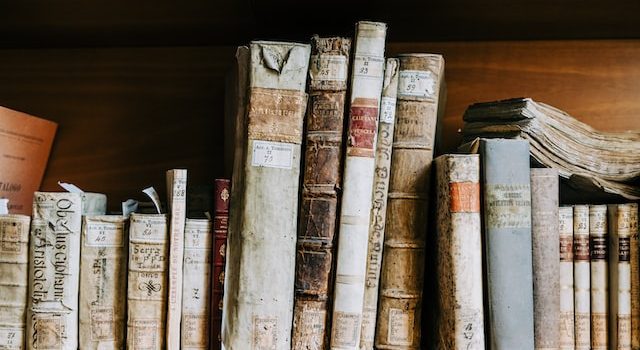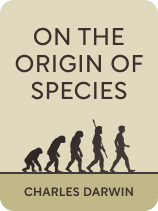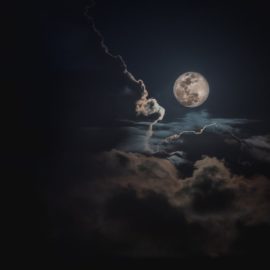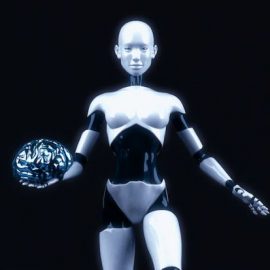

This article is an excerpt from the Shortform book guide to "On the Origin of Species" by Charles Darwin. Shortform has the world's best summaries and analyses of books you should be reading.
Like this article? Sign up for a free trial here.
Did Charles Darwin coin the term “survival of the fittest”? What did Darwin say would bring down his entire theory?
On the Origin of Species revolutionized the way people look at life on Earth. This scientific classic was originally published in 1859 by the naturalist Charles Darwin and went through six editions in Darwin’s lifetime as he continually revised and clarified his ideas.
Read on for several Charles Darwin quotes from On the Origin of Species.
Charles Darwin Quotes From On the Origin of Species
A foundational work in the field of biology, On the Origin of Species explains and argues for the theory of evolution—that organisms weren’t created separately in their current forms but that each species evolved gradually from other species over the course of millions of years.
We’ve collected five Charles Darwin quotes from On the Origin of Species and provided them along with some context and explanation to help you understand Darwin’s ideas.
“One general law, leading to the advancement of all organic beings, namely, multiply, vary, let the strongest live and the weakest die.”
Darwin asserts that any heritable variation that provides one member of a species with an advantage in survival and reproduction over another, no matter how slight, will gradually allow members with that variation to survive and reproduce more than those without it. Over successive generations, natural selection will favor the most useful variations while eliminating the least useful.
(Shortform note: While Charles Darwin didn’t come up with the phrase “survival of the fittest,” he adopted it after other writers used it to describe his findings. Biologists have since tested how much of a difference in “fitness” between organisms of the same species is needed to trigger natural selection. Researchers made tiny detrimental adjustments to the genes in the microorganism salmonella. They found that reducing the bacterium’s fitness by just 0.01% was enough to create noticeable differences in rates of reproduction, suggesting that evolution will select for even the slightest variations over time.)
“Nothing is easier than to admit in words the truth of the universal struggle for life.”
Darwin explains that natural selection happens constantly because many organisms in nature aren’t able to reproduce and survive. Problems such as scarcity of food, competition between species, predators, and disease all limit the number of organisms in a species that will successfully pass on their heritable variations. This pressure ensures that variations that enable survival and reproduction are strongly selected for, while those that don’t confer an advantage are selected against.
“If it could be demonstrated that any complex organ existed, which could not possibly have been formed by numerous, successive, slight modifications, my theory would absolutely break down. But I can find no such case.”
Darwin explains that some naturalists found it difficult to believe that very sophisticated structures could arise through small increments. Organisms today have such highly developed structures and behaviors that it’s hard to imagine a rudimentary version of them providing much value.
Darwin argues that highly sophisticated structures and instincts can evolve incrementally, but they’re often repurposed from earlier structures. An earlier version of a species may evolve a structure for one purpose. Then, the organism finds a new use that allows the structure to continue evolving into greater complexity and sophistication. Furthermore, Darwin argues that, when we look at simpler organisms, we often find earlier versions of rudimentary structures that developed into much more complex structures over time.
“I think it inevitably follows, that as new species in the course of time are formed through natural selection, others will become rarer and rarer, and finally extinct. The forms which stand in closest competition with those undergoing modification and improvement will naturally suffer most.”
Darwin argues that we don’t see many transitional species alive today because competition between species would select against them. Recall that scarcity of food, habitat, and other resources puts species in competition with each other. Those that have evolved the best adaptations outcompete those that are less adapted. Therefore, transitional species are likely to die out.
For example, let’s say there’s a fish that eats two kinds of food: algae and smaller fish. Some of the fish in this population develop a mutation that gives them teeth that can scrape algae off coral, which allows them to eat algae faster. Others develop long, sharp teeth that allow them to catch small fish better. The optimized algae eaters eat most of the available algae, while the optimized fish hunters catch most of the available small fish. Now there’s less to eat for the parent population, which is optimized for neither algae nor small fish. They’ll likely die off, leaving two new species of fish.
“Whilst Man, however well-behaved,
At best is but a monkey shaved!”
Darwin’s theory of evolution maintains that all of our current species descended from older, less developed species. Modern species are in fact distant relatives of each other, descended from common ancestors. Darwin advances four kinds of evidence that species have descended from earlier species: changes in domesticated species, leftover characteristics, intermediate species found in the fossil record, and the role of natural barriers.
Darwin’s theory of evolution maintains that organisms are related to each other through a family tree of descent. Darwin argues that all species today have ancient ancestors in common. He draws on two major types of evidence: similarity of traits and hybridization.

———End of Preview———
Like what you just read? Read the rest of the world's best book summary and analysis of Charles Darwin's "On the Origin of Species" at Shortform.
Here's what you'll find in our full On the Origin of Species summary:
- Charles Darwin's theory of evolution that changed how we look at life on Earth
- The objections raised against Darwin's theory and Darwin's rebuttals
- Updates on Darwin's theories from contemporary biology







You can’t get from chemical to life. We can’t do it. And the small increments changing dna are false. Nothing new is happening. It’s things already in the dna code. We can monkey around with it but we can’t make life. DNA also loses information over time and usually leads to the death of the life form. That’s what is facts found in true science. So with that Genesis is still the best option. It hasn’t been proven wrong yet. And never will. Time isn’t on the evolution’s story side. The theory (which isn’t fact) fails the litmus test.